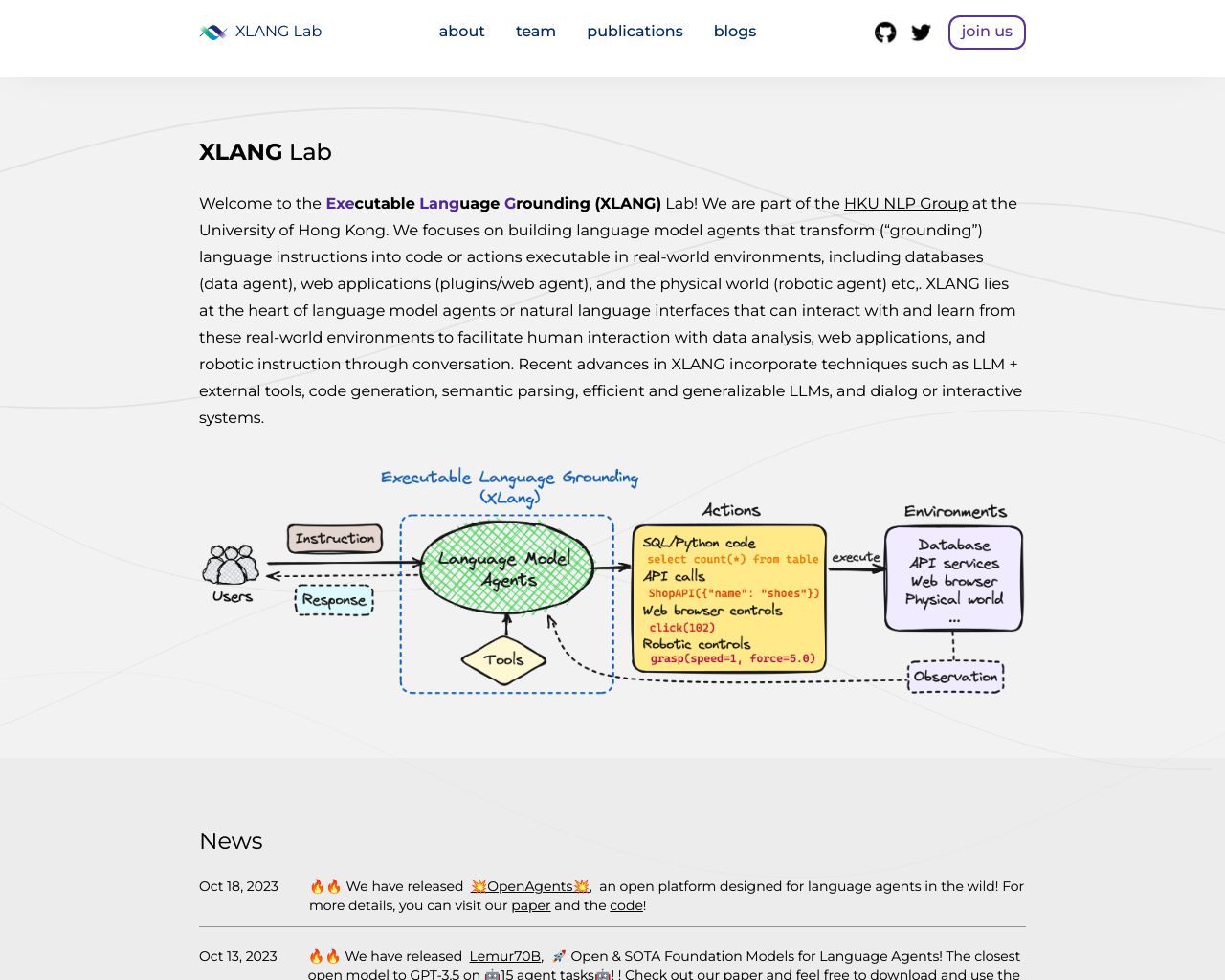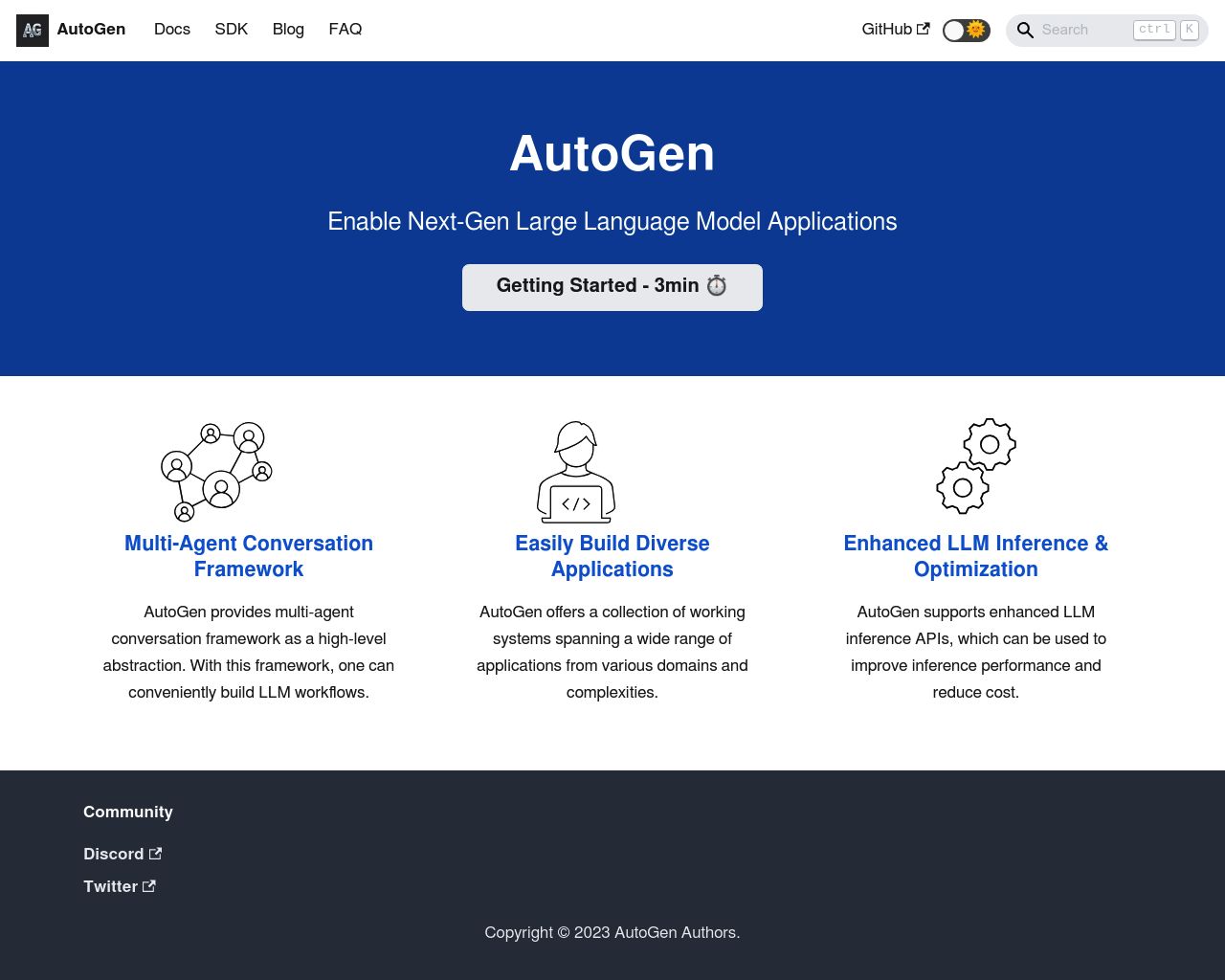OpenAgents Vs AutoGen: A Comprehensive Review
AI agent development platforms unlock powerful capabilities for businesses and developers. OpenAgents offers pre-built solutions for data analysis, task automation, and web browsing, while AutoGen enables sophisticated multi-agent conversations. This comparison explores how these platforms tackle AI agent creation, highlighting their unique approaches to customization, performance optimization, and real-world applications.
We’ll examine key features, strengths, and limitations to help you determine which solution best fits your AI development needs. As we dive into the details, we’ll also introduce SmythOS, a comprehensive platform that combines user-friendly design with enterprise-grade security and scalability, potentially surpassing both OpenAgents and AutoGen in versatility and accessibility.
OpenAgents Overview
OpenAgents transforms AI agent development with its open-source platform for creating, hosting, and managing intelligent digital assistants. The framework supports three primary agent types: Data Agent for complex data analysis, Plugins Agent with over 200 integrations for diverse tasks, and Web Agent for autonomous web browsing.


OpenAgents excels in data processing, task automation, and web interaction. Its Data Agent efficiently handles large datasets, making it valuable for marketing professionals needing quick insights. The Plugins Agent’s extensive library adapts to various user needs, from weather checks to online shopping. Web Agent’s Chrome extension streamlines internet navigation, automating content exploration and information retrieval.
OpenAgents transforms AI agent development with its open-source platform for creating, hosting, and managing intelligent digital assistants.
The platform emphasizes user-friendliness with a web UI and backend server, enabling smooth communication between users and agents. OpenAgents supports both development and production environments, allowing seamless testing and deployment. While it offers powerful features for developers, the absence of a visual builder or no-code editor may present a learning curve for non-technical users.
OpenAgents integrates with foundational AI models from providers like Meta and OpenAI, enhancing its capabilities. The platform supports deploying agents as APIs and webhooks, enabling integration with other systems. However, it lacks some enterprise-focused features like data encryption and OAuth support, which may limit its appeal for large-scale corporate deployments.
The vision behind OpenAgents focuses on bridging the gap between AI experts and everyday users, aiming to make language agents more accessible and practical in real-world scenarios. This approach positions OpenAgents as a versatile tool for developers, researchers, and businesses looking to harness AI for data analysis, web automation, and task management.
AutoGen Overview
AutoGen empowers developers to create sophisticated Large Language Model (LLM) applications through multi-agent conversations. This open-source framework enables customizable agents to interact with each other, LLMs, tools, and humans to tackle complex tasks.


AutoGen’s core strength lies in facilitating multi-agent conversations. These agents collaborate autonomously or with human input, adapting to various use cases. The framework maximizes LLM performance through enhanced inference capabilities, including tuning, caching, error handling, and templating. This optimization proves crucial when working with resource-intensive models like ChatGPT and GPT-4.
AutoGen empowers developers to create sophisticated Large Language Model (LLM) applications through multi-agent conversations.
Customization stands out as a key feature of AutoGen. Developers can tailor agents to specific task requirements, integrating LLMs, human inputs, and diverse tools. The platform supports both fully autonomous operations and human-in-the-loop problem-solving, offering flexibility for applications where human oversight is essential.
AutoGen demonstrates effectiveness across a wide range of applications, from automated task solving and code generation to continual learning and complex problem-solving in group chats. For developers, the framework provides useful debugging tools and logging functionalities for API calls, essential for diagnosing and optimizing LLM-based systems. Additionally, AutoGen includes EcoOptiGen, a cost-effective technique for tuning large language models, highlighting its focus on enhancing LLM efficiency and effectiveness.
While AutoGen offers powerful capabilities, it requires some level of coding expertise, potentially limiting accessibility for non-technical users. The platform also lacks certain features like a visual builder or no-code editor, which might increase the learning curve for some users. Despite these limitations, AutoGen’s flexibility and robust feature set make it a valuable tool for developers and organizations looking to harness the power of conversational AI and LLM applications.
Feature Comparison
OpenAgents and AutoGen take distinct approaches to AI agent development, with notable differences in their core components and security features. OpenAgents provides a user-friendly platform with pre-built agents for data analysis, plugin integration, and web browsing. Its Data Agent excels at complex data processing, while the Plugins Agent offers over 200 integrations for diverse tasks. AutoGen, on the other hand, focuses on enabling multi-agent conversations and enhancing LLM performance through advanced inference capabilities.
In terms of core components, AutoGen offers more flexibility for developers to customize agents and facilitate autonomous conversations between multiple AI entities. It provides debugging tools and logging functionalities crucial for optimizing LLM-based systems. OpenAgents, while powerful, lacks explicit support for multi-agent collaboration and advanced debugging features. Additionally, AutoGen’s EcoOptiGen for hyperparameter optimization demonstrates a stronger emphasis on LLM efficiency.
Regarding security, both platforms have limitations. OpenAgents does not mention specific data encryption features or OAuth support, potentially limiting its appeal for enterprise-level deployments. AutoGen, while more developer-focused, also lacks explicit mentions of robust security measures like constrained alignment or IP control. This gap in security features for both platforms highlights an area where SmythOS excels, offering comprehensive data protection and access control options.
Feature Comparison Table
| OpenAgents | AutoGen | SmythOS | |
|---|---|---|---|
| CORE FEATURES | |||
| Visual Builder | ❌ | ❌ | ✅ |
| No-Code Options | ❌ | ❌ | ✅ |
| Agent Work Scheduler | ❌ | ❌ | ✅ |
| SECURITY | |||
| Constrained Alignment | ❌ | ❌ | ✅ |
| IP Control | ❌ | ❌ | ✅ |
| COMPONENTS | |||
| Data Lakes | ❌ | ❌ | ✅ |
| DEPLOYMENT OPTIONS (EMBODIMENTS) | |||
| Staging Domains | ❌ | ❌ | ✅ |
| Production Domains | ❌ | ❌ | ✅ |
| Deploy as Scheduled Agent | ❌ | ❌ | ✅ |
| DATA LAKE SUPPORT | |||
| Hosted Vector Database | ❌ | ❌ | ✅ |
| Sitemap Crawler | ❌ | ❌ | ✅ |
| YouTube Transcript Crawler | ❌ | ❌ | ✅ |
Best Alternative to OpenAgents and AutoGen
SmythOS emerges as the superior alternative to OpenAgents and AutoGen, offering a comprehensive AI automation platform that combines power with ease of use. Our drag-and-drop interface enables rapid agent creation without coding, making advanced AI accessible to technical and non-technical users alike. SmythOS excels in feature richness, providing capabilities like multi-agent collaboration, autonomous scheduling, and robust debugging tools that outpace both OpenAgents and AutoGen.
SmythOS emerges as the superior alternative to OpenAgents and AutoGen, offering a comprehensive AI automation platform that combines power with ease of use.
We offer unparalleled flexibility in deployment options, allowing users to integrate AI agents seamlessly across various platforms and environments. SmythOS prioritizes security and scalability, addressing enterprise needs that OpenAgents and AutoGen overlook. With our extensive API integrations and support for diverse AI models, SmythOS empowers users to tackle unlimited use cases efficiently. By choosing SmythOS, users gain a versatile, user-friendly platform that accelerates AI development and deployment, driving innovation across industries.
Conclusion
OpenAgents and AutoGen offer unique approaches to AI agent development, each with its strengths. OpenAgents excels in data analysis, plugin integration, and web browsing automation, making it suitable for users seeking ready-made solutions for specific tasks. AutoGen, on the other hand, provides a flexible framework for creating sophisticated multi-agent systems, appealing to developers who require fine-grained control over agent interactions.
However, SmythOS emerges as the superior choice, combining the best of both worlds while addressing their limitations. Our platform offers a user-friendly drag-and-drop interface, extensive API integrations, and support for various AI models, making it accessible to both technical and non-technical users. SmythOS’s ability to deploy agents across multiple platforms, including popular services like Google Vertex and Amazon Web Services Bedrock, sets it apart in terms of versatility and scalability.
Moreover, SmythOS addresses the security concerns present in both OpenAgents and AutoGen. We provide robust data encryption, OAuth support, and IP control features, making our platform ideal for enterprise-level deployments that require stringent security measures. This comprehensive approach to security, combined with our platform’s ease of use and powerful capabilities, positions SmythOS as the optimal solution for businesses looking to harness the full potential of AI agents.
To experience the future of AI agent development and deployment, create a free SmythOS account today. Our platform offers unlimited agent creation with a 30-day money-back guarantee, allowing you to explore AI automation without risk. Discover our diverse range of AI-powered agent templates to jumpstart your projects and revolutionize your workflow. With SmythOS, you’re not just adopting a tool – you’re embracing a new era of AI-driven innovation and efficiency.
Last updated:
Disclaimer: The information presented in this article is for general informational purposes only and is provided as is. While we strive to keep the content up-to-date and accurate, we make no representations or warranties of any kind, express or implied, about the completeness, accuracy, reliability, suitability, or availability of the information contained in this article.
Any reliance you place on such information is strictly at your own risk. We reserve the right to make additions, deletions, or modifications to the contents of this article at any time without prior notice.
In no event will we be liable for any loss or damage including without limitation, indirect or consequential loss or damage, or any loss or damage whatsoever arising from loss of data, profits, or any other loss not specified herein arising out of, or in connection with, the use of this article.
Despite our best efforts, this article may contain oversights, errors, or omissions. If you notice any inaccuracies or have concerns about the content, please report them through our content feedback form. Your input helps us maintain the quality and reliability of our information.
